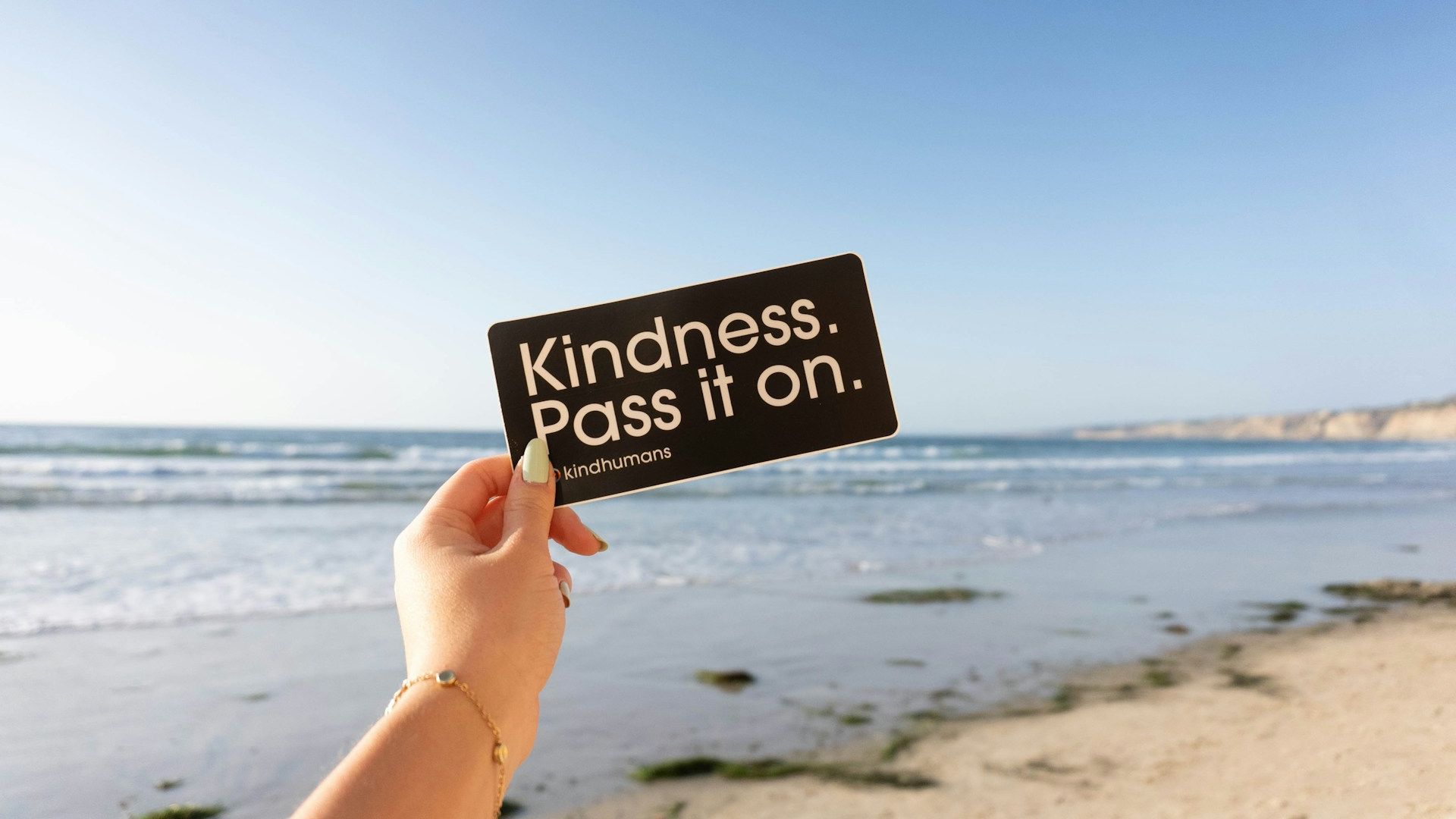
Ordinary Love
Jun 25, 2025
An invitation to true wellness culture
Postmodernity is too egocentric. This includes current “spiritual” trends.
Here’s what an alternative can look like: Yesterday Dara asked Jason to install a window A/C unit in Val’s room; he came over and did it. Last night a participant shared struggling with a contract at work, and a lawyer in the session volunteered to help her redline it. My sister watches the kids while I help my brother-in-law move their furniture to make room for the new baby. If this doesn’t sound special, that’s the point. You’re already doing this, that’s also the point.
I’m not writing to admonish us to “get rid” of the “ego”—a particular self-identity*. I think it’s too hard for modern Americans, steeped in a culture of individualism. I love life, people, experience, and I think a good life includes a sense of “me”. Instead, I want to expand the sense of self to go much beyond the concept of “my body, my history” to see the larger whole these are part of. One upshot of this is gratitude, even for what I usually think of as “Jordan’s”—like these thoughts thunk in English. I needed English to think ‘em, so how much are they ‘mine’?
Automated (& consensual) narrative lock-in
We know that social media exacerbated this inflated self-importance. Many studies show narcissism and loneliness increasing faster with mass adoption of social media, especially after 2012. Young kids don’t want to serve as a fireman or doctor anymore, they want to be adored as an influencer (We’re working on this social media problem by launching UpTrust).
Now I worry that AI is exponentiating this self-reification trend to unprecedented levels.
Last week I met four people who were convinced that their personal ChatGPT interface, molding its “personality” to respond based on their unique interactions, was a sentient being. If you think our filter bubbles are bad now, imagine what it’s like when we have 8 billion of them? Each individual’s personal collection of bots reinforcing whatever identity feels special, safe, and comfortable, no matter how limited and delusional?
There’s nothing wrong with specialness, safety, and comfort, but neither is there anything wrong with ordinariness, risk, and discomfort. Transformation, life, intimacy, and play all demand both. Are we bleaching the color of life in pursuit of maintaining a self? What are we so afraid of that we hide from becoming? Life is transformation. Relating requires and changes our uniqueness. Other people providing friction and challenge—that’s a service, freely given to all at birth.
Perhaps the trap isn’t narcissism. It’s any reification of identity via any narrative frame, especially spiritual ones, designed to parade as if they’re narrative-free. And the cost is ordinary love.
Transcend and exclude often means we fall back into less maturity
I’m still trying to get my mind and language around this, so I’m going to highlight the contrast to see the phenomena more clearly. Does your coach / (AI) therapist / culture / practice help you:
- Express more gratitude? Become more forgiving? Be more accepting of others’ flaws? “Settle matters quickly with your adversary who is taking you to court"?
Or say you should be treated in a very particular way (reifying a victim identity?) - Build infrastructure that’s super helpful but unsexy? Do things that are good for others without recognition? Feed those who are hungry? Do mundane things for the local whole like pick up trash that’s not yours?
Or build a marketing funnel that will help you promote yourself and perpetuate the ‘me’ ‘me’ ‘me’ cycle? - Love your friends and family better? Accept being misunderstood? Show up to their events and support their successes? Take care of them when they’re sick? Be more generous? Patient, humble, respectful, loyal, temperate? Maintain commitments regardless of feelings?
Or emphasize your in-the-moment desire above all else, calling impulsivity and self-centeredness ‘surrender’? - Develop boundaries as expressions of love and connection? Face challenges with grace and acceptance? Take responsibility for your pain, flaws, mistakes, shadows, and limitations?
Or use "boundaries" to control others and force them to change according to your preferences? - Admit ignorance, learn from criticism, hold your beliefs lightly, speak simply about profound experiences, work steadily without needing dramatic breakthroughs, notice your defensive patterns without performatively announcing them, contribute to social understanding, love others as they are?
Or position yourself as having rare insights to help others transcend their limitations through your techniques and advice?
This list can go on; I wish I could speak to the connection and community side more but I’m stuck in my own bias.
I’m not saying it’s easy, we of course need guides, mentors, feedback – it’s so complicated! Nor am I saying it's special—all of this has been said for thousands of years! I’m trying to highlight a healthy version of one pole and unhealthy versions of another on purpose to get more clarity on where we are deeply unbalanced today. This is especially true of ‘spiritual’ hotbeds like San Francisco, Boulder, Ubud, Amsterdam. Austin is somewhat counterbalanced by its Texas-ness—cowboy culture still emphasizes family, duty and sacrifice to a greater good beyond ‘you’. Plus our immigrants are a little more integrated.
*Although that is a path that can work for some people like Byron Katie or Eckhart Tolle, it’s a hard one to “do” because the will that acts needs to eventually be transcended. In both of their histories, their dissolution was more done to them.
With love, Jordan
More like this?
Fresh practices, psyche-activating perspectives, & relationship tips every week in your inbox. Plus occasional updates from our team.
We hate SPAM. We will never sell your information, for any reason.

